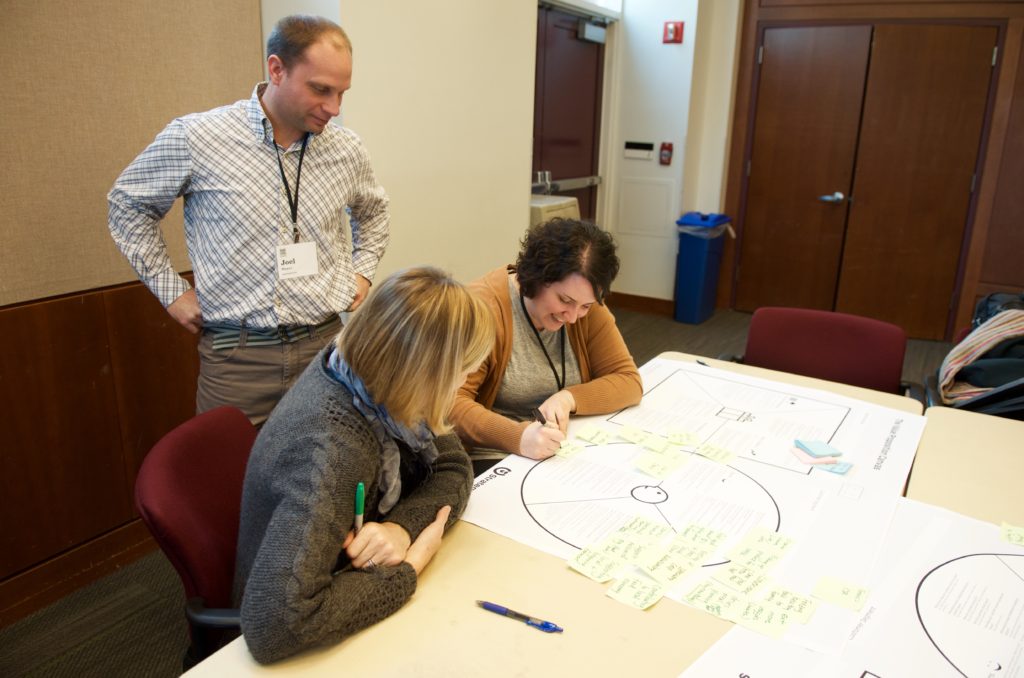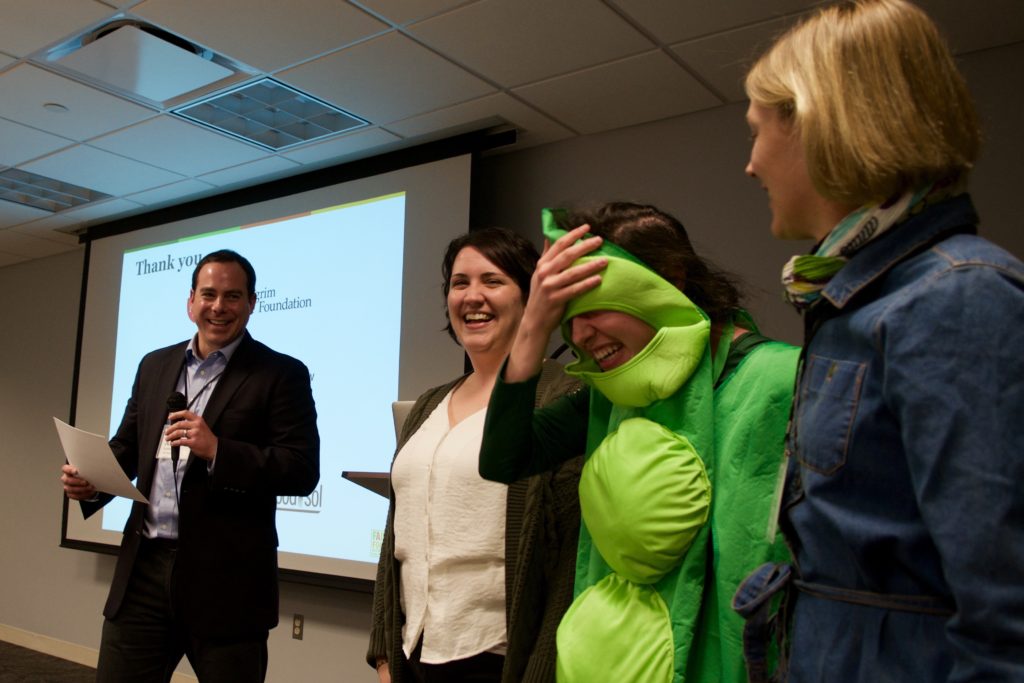Taking A Farmer-Focused Food Hub to the Next Level
World PEAS Food Hub has a mission as large as its name suggests: to build a more sustainable and inclusive food system by helping beginning, immigrant, and refugee farmers by connecting them with consumers hungry for fresh produce. 
A program of the New Entry Sustainable Farming Project, World PEAS began in 2005 as a greater Boston cooperative. Today it includes a warehouse, CSA, and low-income food access program, offering farmers technical assistance and a market for their produce, and consumers fresh, local, and sustainably grown food. (CSA stands for community supported agriculture, a popular way for consumers to buy local, seasonal food directly from area farmers.)
But recently, World PEAS found itself in a slump, with its CSA membership declining and sales down. NESFP director Jennifer Hashley and World PEAS food hub manager Kristen Whitmore wanted to create a business plan that would map out how this nonprofit food hub could get back on its feet and become financially self-sustaining.
But how?
To start to figure that out, and begin to develop a comprehensive, realistic business plan, they attended the Fair Food Business Boot Camp – a three-day intensive training for good food entrepreneurs in the Northeast. We followed along as they worked with like-minded good food entrepreneurs—and toward the boot camp’s culminating pitch contest with the chance to win $10,000 in awards.
BEFORE BOOT CAMP: OFF TO A GREAT START
Heading into the boot camp, Hashley and Whitmore were excited. They were ready for a big-picture analysis that could help them fulfill their mission while getting their financials in shape. “In a busy nonprofit, it can be hard to carve out time and hash this stuff out,” Whitmore said.
AT BOOT CAMP: IN THE THICK OF IT
We caught up with Hashley and Whitmore on the second night of boot camp.
On the first day, they’d met fellow entrepreneurs, worked on their pitches, and learned about financial management. Today, the two were deep in preparation mode for the next day’s pitch competition. They’d just had some pizza and were back at it in the room, where, Hashley said with a laugh, “We’ve been locked since 8 a.m.”
The boot camp sessions had been challenging but productive, Whitmore said, digging right into the crux of World PEAS’ challenges and potential solutions. “It’s been a combination of probing a lot of the same questions we ask ourselves daily and feeling very overwhelmed by thinking about them all day long,” Whitmore said.
That probing fueled a constant refining and distilling of their pitch: “We’re already working on our third version.”
AFTER BOOT CAMP: SUCCESS!
All that hard work paid off.
World PEAS won the $5,000 audience choice award with their five-minute pitch that described the organization’s greatest challenge—its drop in sales—and its hopes to use the award to hire a business consultant who could help them further the mission of helping farmers while generating profit. The prize wasn’t the only payoff, though.
“One of the most useful parts was taking the opportunity to get real with ourselves about our numbers and goals and what type of business is realistic for us,” Whitmore said. The feedback and expertise set them on smarter track.
“One of the key messages I took away is people need to focus on their core business and get really good at that before trying to scale up too quickly,” Hashley said. “If your core is not strong and solid, you’re going to fall apart at the scaling piece of it.”
 Now, Hashley said, World PEAS is ready to hone its processes, procedures, and job descriptions and clarify its growth strategies. Already, Hashley and Whitmore have adjusted some price margins, and they’re excited to pursue other ideas, like making seasonal assets earn revenue all year.
Now, Hashley said, World PEAS is ready to hone its processes, procedures, and job descriptions and clarify its growth strategies. Already, Hashley and Whitmore have adjusted some price margins, and they’re excited to pursue other ideas, like making seasonal assets earn revenue all year.
“It’s not all going to happen right now, but this will get us some real, clear metrics,” Hashley said. “And hopefully the business consultant will help us see where we need to be and explore the reality of how we’re going to get there.”
Courtney Balestier is a James Beard-nominated writer based in Detroit.







